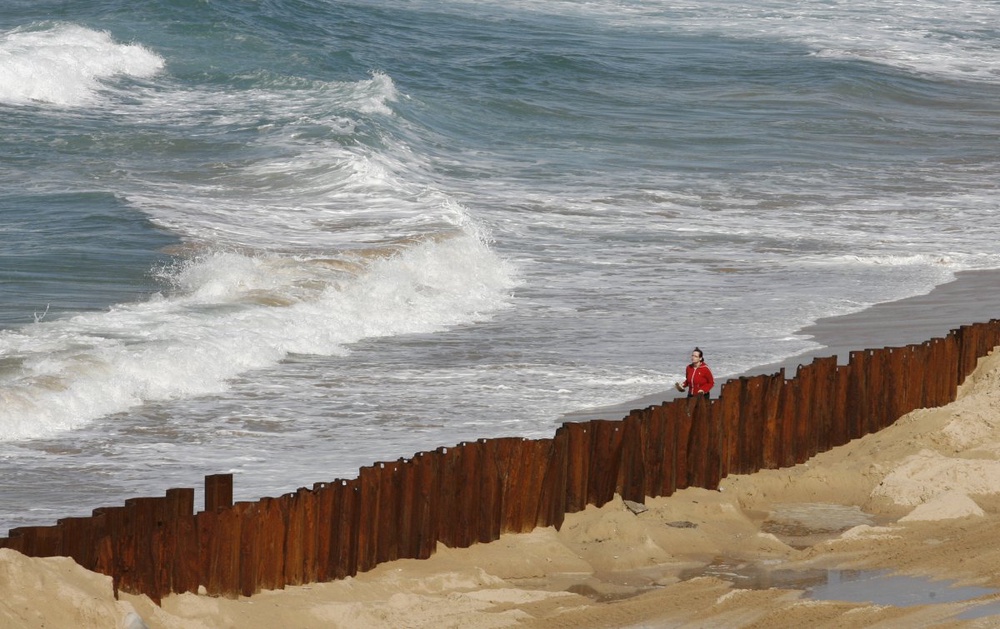
An unprecedented spike in Pacific trade winds has seen global warming slow significantly in the past 12 years but the effect is only temporary and temperatures will surge, AFP reports according to the study. The Australian-led report, published in the latest edition of Nature Climate Change, said a dramatic acceleration in equatorial trade winds blowing from the Americas to the West Pacific had boosted circulation of the Pacific Ocean. "If the trade winds blow particularly strong that warm water that's piled up there starts to converge in the ocean interior," said lead author Matthew England. "In a way it's locking away energy we've obtained from greenhouse gas into the subsurface ocean and that's what causes the hiatus (in global warming)." The study examined a pause in global warming since 2001 along with a previous such stall between 1940-75 and identified a close link to negative phases of the Interdecadal Pacific Oscillation (IPO) -- a wind pattern associated with a cool tropical Pacific and strengthened winds. England said the current plateau in global warming at a time when "greenhouse gases in the atmosphere have shot up to record levels" had puzzled scientists. "This pause in surface warming doesn't mean that global warming has stopped at all, we see Arctic sea ice melting to record low levels, the land ice sheets across the world are melting rapidly, ocean temperatures continue to warm," he said. "So it's not a contradiction of global warming but it has confused scientists, just because we do expect the surface temperatures around the world to progressively warm decade by decade." England's team, which also included researchers from the United States, looked to the seas for answers and found "there was more than enough heat going into the ocean to account" for the plateau they were seeing. "The reason the oceans are taking up extra heat, and this is particularly occurring in the Pacific Ocean is that the trade winds have strengthened considerably over the last two decades," he said, describing their intensification as "unprecedented in the measurement record and way beyond the strength of the trends ever captured by climate models". But England said the surging trade winds were only temporary and their associated cooling effects would likely reverse sharply once the IPO shifted back to a positive phase. "If the trade winds slow down or stop, what happens is that heat absorption by the ocean reverses and we actually get heat coming back up to the atmosphere," he said. "The bad news is that out of this hiatus we're expecting quite rapid warming to occur."





An unprecedented spike in Pacific trade winds has seen global warming slow significantly in the past 12 years but the effect is only temporary and temperatures will surge, AFP reports according to the study.
The Australian-led report, published in the latest edition of Nature Climate Change, said a dramatic acceleration in equatorial trade winds blowing from the Americas to the West Pacific had boosted circulation of the Pacific Ocean.
"If the trade winds blow particularly strong that warm water that's piled up there starts to converge in the ocean interior," said lead author Matthew England.
"In a way it's locking away energy we've obtained from greenhouse gas into the subsurface ocean and that's what causes the hiatus (in global warming)."
The study examined a pause in global warming since 2001 along with a previous such stall between 1940-75 and identified a close link to negative phases of the Interdecadal Pacific Oscillation (IPO) -- a wind pattern associated with a cool tropical Pacific and strengthened winds.
England said the current plateau in global warming at a time when "greenhouse gases in the atmosphere have shot up to record levels" had puzzled scientists.
"This pause in surface warming doesn't mean that global warming has stopped at all, we see Arctic sea ice melting to record low levels, the land ice sheets across the world are melting rapidly, ocean temperatures continue to warm," he said.
"So it's not a contradiction of global warming but it has confused scientists, just because we do expect the surface temperatures around the world to progressively warm decade by decade."
England's team, which also included researchers from the United States, looked to the seas for answers and found "there was more than enough heat going into the ocean to account" for the plateau they were seeing.
"The reason the oceans are taking up extra heat, and this is particularly occurring in the Pacific Ocean is that the trade winds have strengthened considerably over the last two decades," he said, describing their intensification as "unprecedented in the measurement record and way beyond the strength of the trends ever captured by climate models".
But England said the surging trade winds were only temporary and their associated cooling effects would likely reverse sharply once the IPO shifted back to a positive phase.
"If the trade winds slow down or stop, what happens is that heat absorption by the ocean reverses and we actually get heat coming back up to the atmosphere," he said.
"The bad news is that out of this hiatus we're expecting quite rapid warming to occur."

 +7 (777) 001 44 99
+7 (777) 001 44 99



 Қазақша
Қазақша Русский
Русский English
English














































